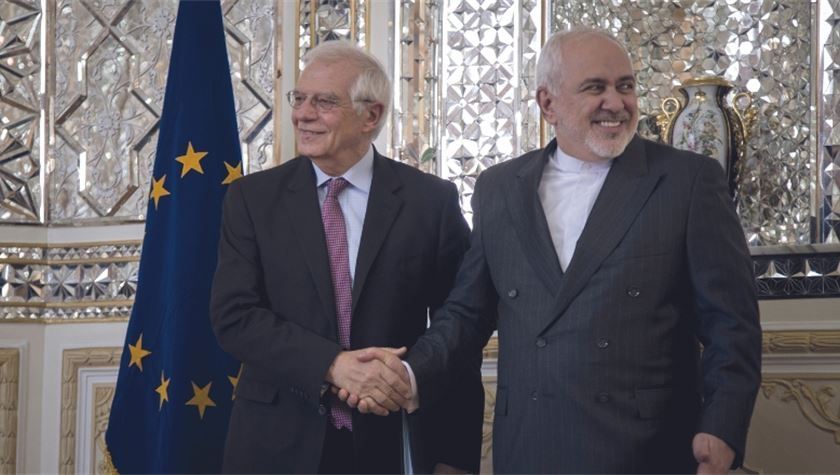News
Plus ça change – or what the EU needs to learn (again) about rogue states and sanctions
As Europe and the US negotiate with Iran to revive the 2015 nuclear deal, Holger Loewendorf warns they should consider the growing relationship between Russia and Iran, and how it could be "a means to weaken the EU”
The Parliament, 22 September 2022
by Holger Loewendorf / Photo credits: Alamy
There is no question that we are living in an era of democratic backsliding. According to V-Dem’s 2022 Democracy Report, dictatorships are on the rise and now harbour 70 percent of the world’s population. The last 30 years of democratic advances have effectively been erased, as more and more countries with increased relative power threaten the liberal order and create havoc on a global scale.
Next to China’s continued totalitarian devolution, Russia and Iran deserve our attention at this moment. These two autocracies have long been hostile towards Western notions of rights and freedoms, but they are now intensifying their relationship in response to being heavily sanctioned. Their respective isolation has led to top-level discussions on establishing a new era of strategic cooperation, which will look very much like a new era of sanction evasion to everyone else. Geopolitical ostracism has been a fact of life for Iran since 1979 but comes as a bit of a surprise for Russia after EU members realised belatedly that “Handel durch Wandel” (or change through trade) was actually a Faustian bargain. Meanwhile, the European Union and the United States are contemplating how to revive the 2015 nuclear deal, or Joint Comprehensive Plan of Action (JCPOA), with Iran.
Iran has a history of deceiving the international community, including International Atomic Energy Agency monitors, while increasing its nuclear capacities
This Gordian knot of interests should serve as a warning to the EU. Whether considering established patterns or recent examples of Iranian behaviour, European representatives should know by now that they are not dealing with a regime acting in good faith. In addition to being a state sponsor of terrorism and brutally repressing any signs of internal dissent, Iran has a history of deceiving the international community, including International Atomic Energy Agency monitors, while increasing its nuclear capacities. The country engages in cyberattacks, with Albania being the latest target, and supplied Russia with drones to continue its war of aggression against Ukraine.
Europe’s diplomats need to answer several questions for themselves before granting Iran any kind of economic relief as a consequence of JCPOA talks. For starters, should Iran be treated as a reliable negotiating partner? If yes, on what grounds? If not, are there conditions Iran should meet to demonstrate that it can be trusted? Looming behind this fundamental issue is the stated relationship of mutual support between Russia and Iran. Even when perceived as an alliance of convenience or a sign of desperation, it must not become a means to weaken the EU. But what measures have been put into place to ensure that the JCPOA does not become a Russian tool to hollow out European sanctions? For instance, Iran could use unfrozen cash reserves in a swap arrangement to import Russian crude, refine it for domestic consumption, and sell the same quantity of oil on Russia’s behalf via its domestic fleet of tankers. It does not take giant leaps of the imagination to consider how much more harmful closer military - including nuclear - cooperation between these two countries would be.
Since Russia’s unprovoked attack against Ukraine on 24 February, the EU has been united in adopting several sets of punitive sanctions against Russia. Long before then, Iran has been sanctioned for various violations of international law. To ensure that these sets of measures have their intended impact, they need to be implemented and monitored effectively. In contrast, premature concessions by the EU have the potential to backfire spectacularly. They would signal to Iran and Russia that their roles as sources of global instability are acceptable and even encourage escalatory policies. A less tangible but equally detrimental cost would be the EU’s diminished reputation as a defender of human rights. It is stating the obvious that Russia and Iran do not share these concerns, but so is the idea that European leaders could have and should have learned this lesson a long time ago. Here is yet another opportunity.
The original article is available here: https://www.theparliamentmagazine.eu/news/article/plus-a-change-or-what-the-eu-needs-to-learn-again-about-rogue-states-and-sanctions

